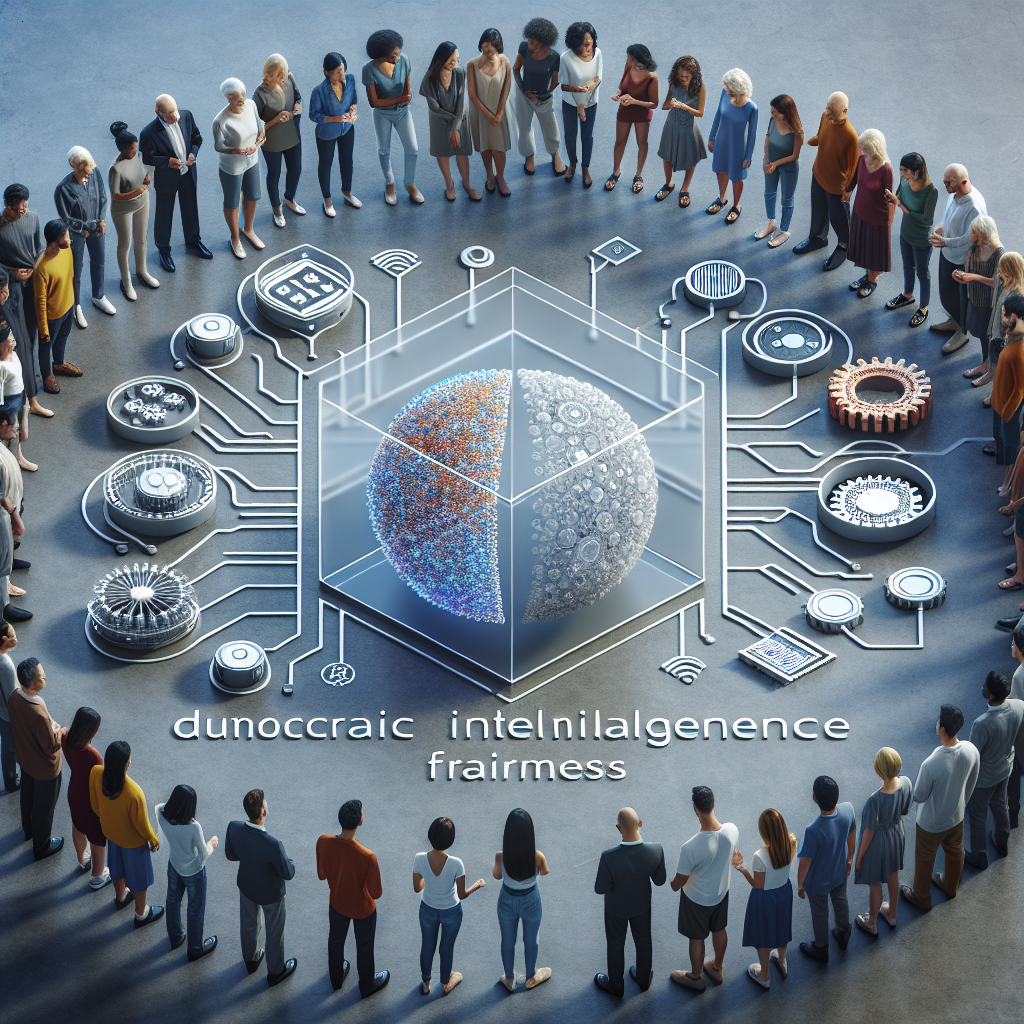The Ethics of AI Democratization: Ensuring Fairness and Transparency
Artificial Intelligence (AI) has become an increasingly powerful tool in various industries, from healthcare to finance to transportation. As AI technology continues to evolve and become more accessible, there is a growing concern about the ethics of AI democratization. The democratization of AI refers to the process of making AI technology available to a wide range of users, including individuals, businesses, and governments. While the democratization of AI has the potential to bring about significant benefits, such as increased efficiency, productivity, and innovation, it also raises important ethical questions related to fairness and transparency.
Fairness in AI is a critical issue that has gained significant attention in recent years. AI algorithms are often trained on large datasets that may contain biases, such as gender, race, or socioeconomic status. These biases can lead to unfair outcomes, such as discriminatory hiring practices or biased loan decisions. In order to ensure fairness in AI, it is essential to develop algorithms that are free from bias and discrimination. This can be achieved by using diverse and representative datasets, implementing fairness metrics, and regularly auditing and monitoring AI systems for bias.
Transparency is another key ethical consideration in the democratization of AI. Transparency refers to the ability to understand how AI systems work and make decisions. AI algorithms are often complex and opaque, making it difficult for users to understand how decisions are being made. This lack of transparency can lead to a lack of accountability and trust in AI systems. To ensure transparency in AI, it is important to develop algorithms that are interpretable and explainable. This can be achieved by using transparent models, providing explanations for AI decisions, and allowing users to understand and challenge AI outcomes.
In addition to fairness and transparency, there are other ethical considerations that need to be addressed in the democratization of AI. These include privacy, security, accountability, and the impact of AI on jobs and society. Privacy concerns arise when AI systems collect and analyze personal data without consent or in a way that violates privacy laws. Security concerns arise when AI systems are vulnerable to cyberattacks or misuse. Accountability concerns arise when AI systems make decisions that harm individuals or society, without clear lines of responsibility. The impact of AI on jobs and society is a complex issue that requires careful consideration of how AI will affect employment, income inequality, and social cohesion.
In order to address these ethical considerations, it is essential to develop ethical guidelines and standards for the democratization of AI. These guidelines should be based on principles of fairness, transparency, privacy, security, accountability, and social responsibility. They should be developed in collaboration with a wide range of stakeholders, including AI developers, users, regulators, and ethicists. By adhering to these ethical guidelines, we can ensure that the democratization of AI leads to positive outcomes for individuals, businesses, and society as a whole.
FAQs
Q: What are some examples of bias in AI algorithms?
A: Bias in AI algorithms can manifest in various ways, such as gender bias in hiring algorithms, racial bias in facial recognition systems, or socioeconomic bias in loan approval algorithms.
Q: How can we ensure fairness in AI algorithms?
A: Fairness in AI algorithms can be ensured by using diverse and representative datasets, implementing fairness metrics, and regularly auditing and monitoring AI systems for bias.
Q: Why is transparency important in AI?
A: Transparency in AI is important because it allows users to understand how AI systems work and make decisions, leading to greater accountability and trust in AI technology.
Q: What are some ethical considerations in the democratization of AI?
A: Some ethical considerations in the democratization of AI include fairness, transparency, privacy, security, accountability, and the impact of AI on jobs and society.
Q: How can we address ethical considerations in the democratization of AI?
A: Ethical considerations in the democratization of AI can be addressed by developing ethical guidelines and standards based on principles of fairness, transparency, privacy, security, accountability, and social responsibility.

